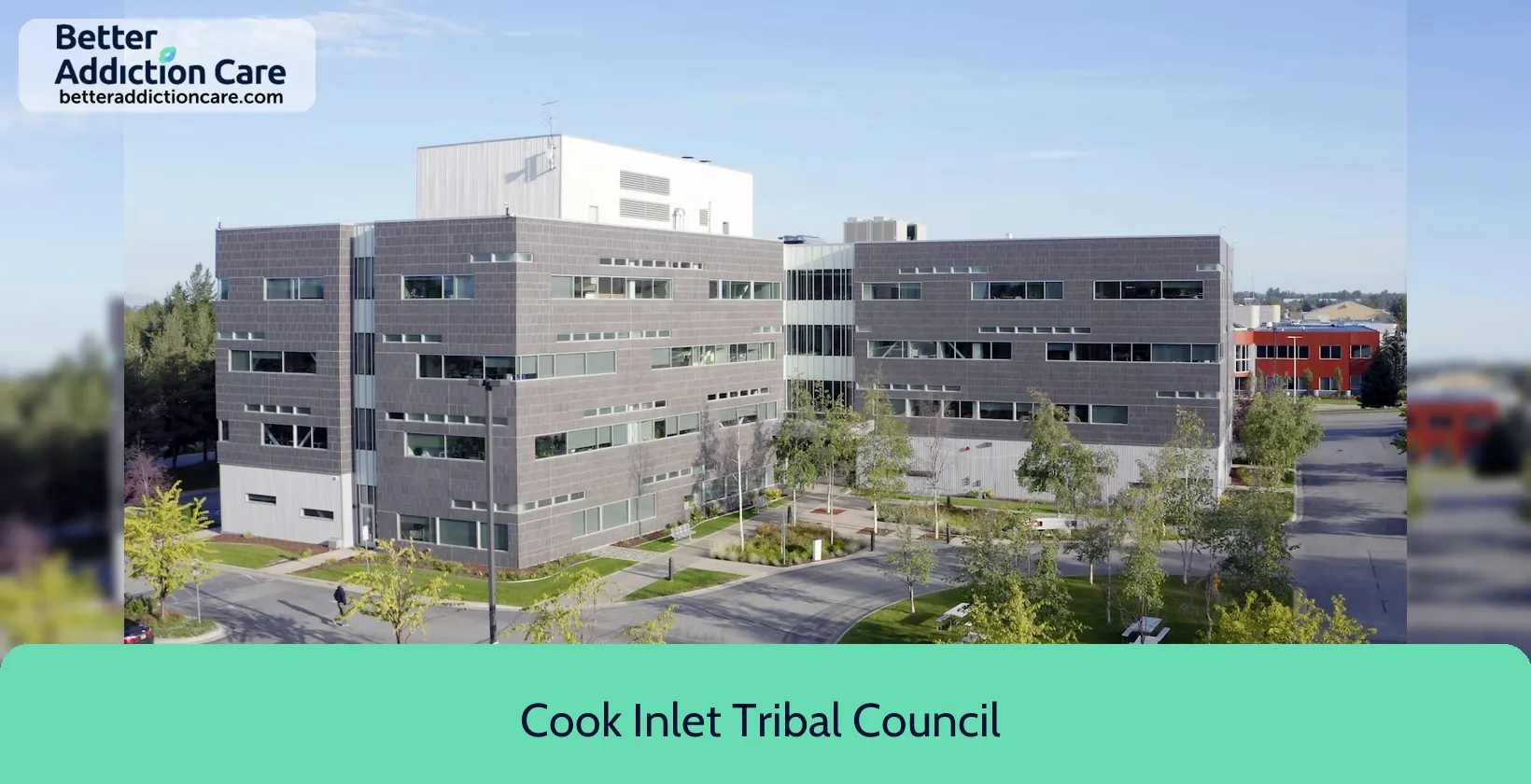Cook Inlet Tribal Council - Recovery Services Outpatient Services
Overview
Cook Inlet Tribal Council, located in Anchorage, Alaska, offers a diverse range of services aimed at empowering individuals and families within the community. The organization is dedicated to fostering growth and well-being through various programs, including early learning and career development, alongside comprehensive recovery services for both youth and adults.
The recovery services at Cook Inlet Tribal Council are designed to support individuals from as young as 10 years old up to 24 years old, as well as adults. These services encompass multiple levels of care, including Residential Services, Outpatient Services, and Intervention Services, all tailored to meet the specific needs of each client.
The facility is equipped to provide Medication-Assisted Treatment (MAT), an evidence-based approach that combines FDA-approved medications with counseling and behavioral therapies to treat substance use disorders. This holistic and culturally sensitive approach ensures that clients receive the support necessary to achieve and maintain long-term recovery.
Through its broad spectrum of services, Cook Inlet Tribal Council plays a vital role in enhancing the health, education, and economic stability of the Anchorage community, particularly for those facing the challenges of addiction and recovery.
Cook Inlet Tribal Council - Recovery Services Outpatient Services at a Glance
Payment Options
- Cash or self-payment
- Medicaid
- Medicare
- State-financed health insurance plan other than Medicaid
- Private health insurance
Assessments
- Screening for tobacco use
- Comprehensive substance use assessment
- Interim services for clients
- Outreach to persons in the community
- Screening for mental disorders
Age Groups
- Young adults
- Adults
- Seniors
Ancillary Services
- Case management service
- Suicide prevention services
- Mental health services
- Social skills development
- Transportation assistance
Highlights About Cook Inlet Tribal Council - Recovery Services Outpatient Services
7.03/10
With an overall rating of 7.03/10, this facility has following balanced range of services. Alcohol Rehabilitation: 8.00/10, Drug Rehab and Detox: 6.00/10, Insurance and Payments: 6.67/10, Treatment Options: 7.46/10.-
Alcohol Rehabilitation 8.00
-
Treatment Options 7.46
-
Insurance and Payments 6.67
-
Drug Rehab and Detox 6.00
Accreditations
SAMHSA certification for opioid treatment program (OTP):
SAMHSA's Opioid Treatment Programs (OTPs) accreditation is a rigorous recognition process that signifies an OTP's commitment to providing high-quality care for individuals dealing with opioid use disorders. It assures patients, families, and the community that the program adheres to evidence-based practices, employs qualified staff, and maintains a safe treatment environment. This accreditation is a symbol of quality and accountability, offering confidence in the program's ability to support individuals on their path to recovery from opioid addiction.
Commission on Accreditation of Rehabilitation Facilities (CARF):

CARF accreditation is a prestigious recognition for organizations in rehabilitation and human services. It signifies that an organization meets rigorous quality standards and is committed to providing top-notch care. Achieving CARF accreditation involves a thorough evaluation process, including on-site surveys, to ensure excellence in programs and services. This accreditation boosts an organization's credibility, assures clients and funders of quality, and promotes ongoing improvement in the field of rehabilitation and human services.
Registration: 77435
Treatment At Cook Inlet Tribal Council - Recovery Services Outpatient Services
Treatment Conditions
- Alcoholism
- Substance use treatment
Care Levels
- Outpatient
- Intensive outpatient treatment
- Regular outpatient treatment
- Aftercare
- Halfway house
Treatment Modalities
- Cognitive behavioral therapy
- Telemedicine/telehealth therapy
- Substance use disorder counseling
- Trauma-related counseling
- Group counseling
Ancillary Services
Languages
- Sign language services for the deaf and hard of hearing
- Spanish
- American Indian or Alaska Native languages
- Yupik
Additional Services
- Pharmacotherapies administered during treatment
- Mentoring/peer support
- Breathalyzer or blood alcohol testing
Special Programs
- Clients with co-occurring mental and substance use disorders
- Clients who have experienced trauma
Get Help Now
Common Questions About Cook Inlet Tribal Council - Recovery Services Outpatient Services
Contact Information
Other Facilities in Anchorage

6.68

7.42

6.59

7.39
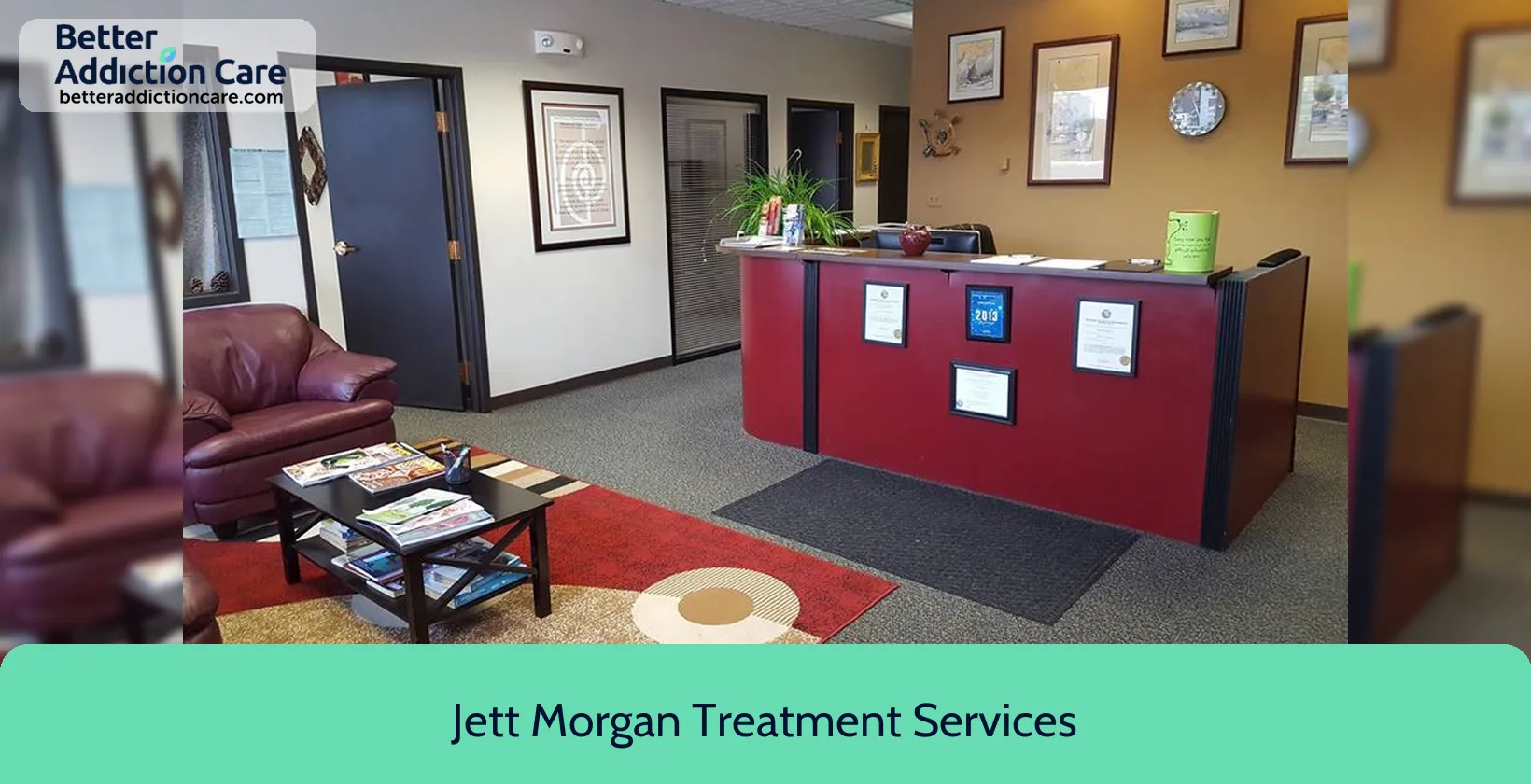
6.77
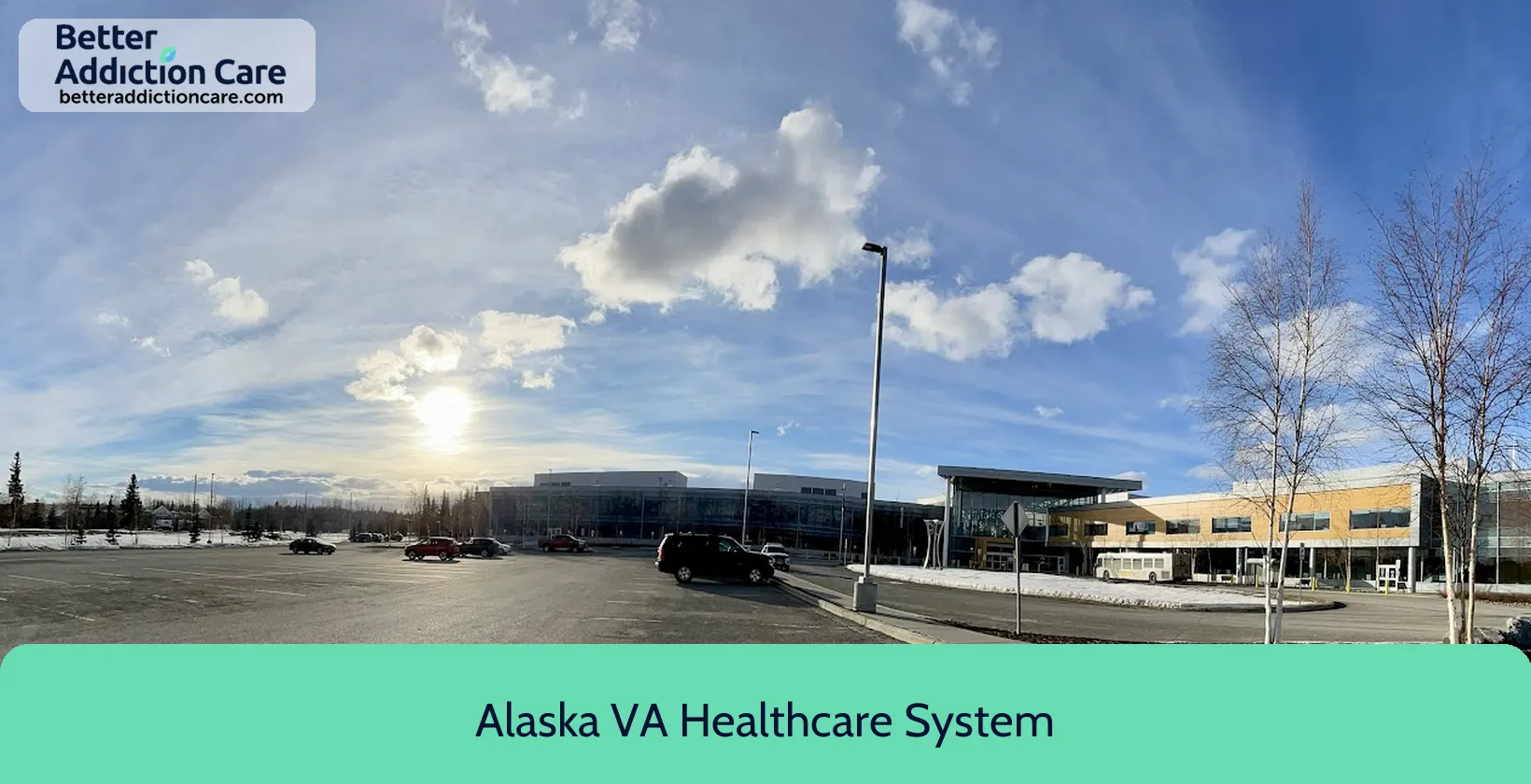
7.52
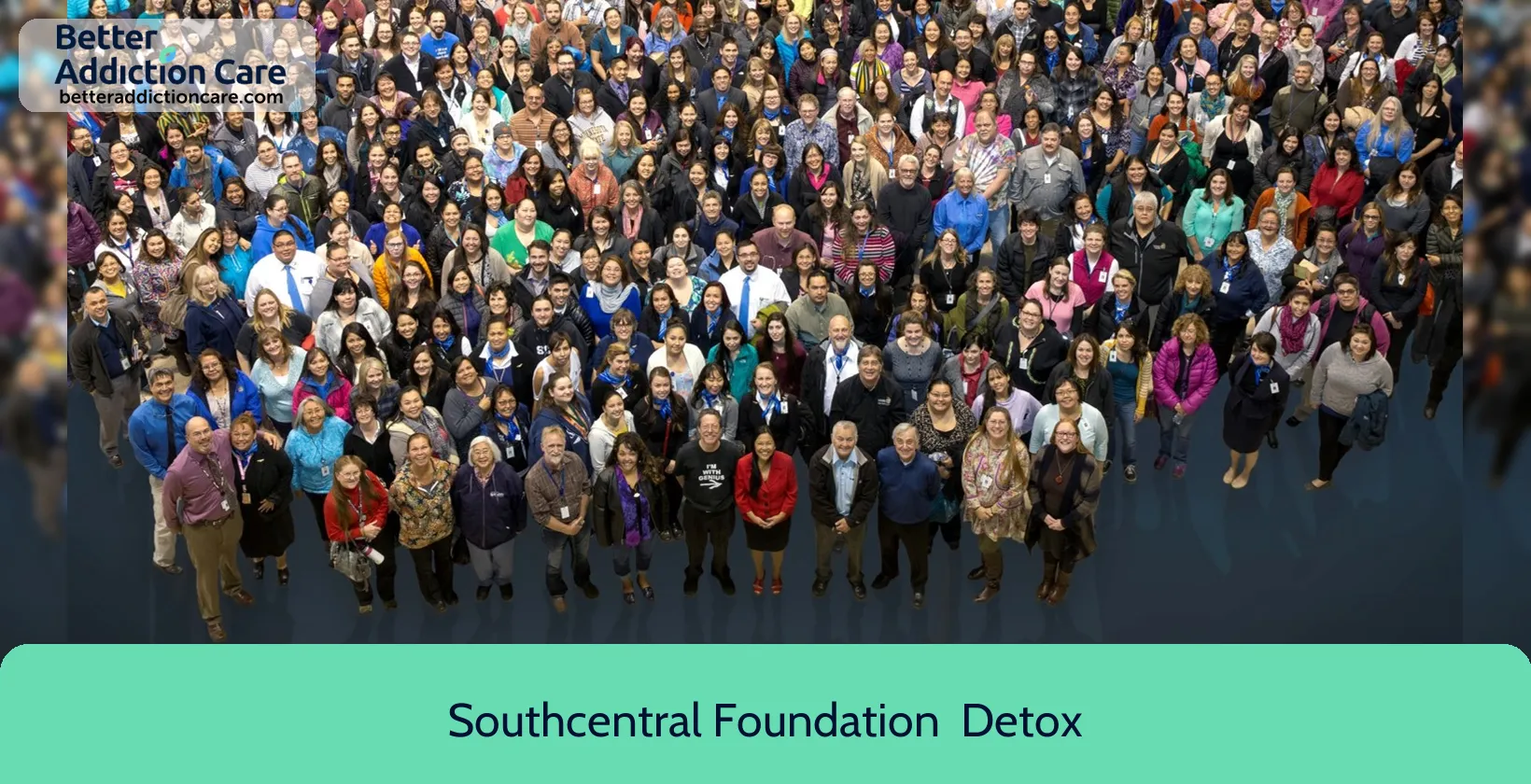
7.27
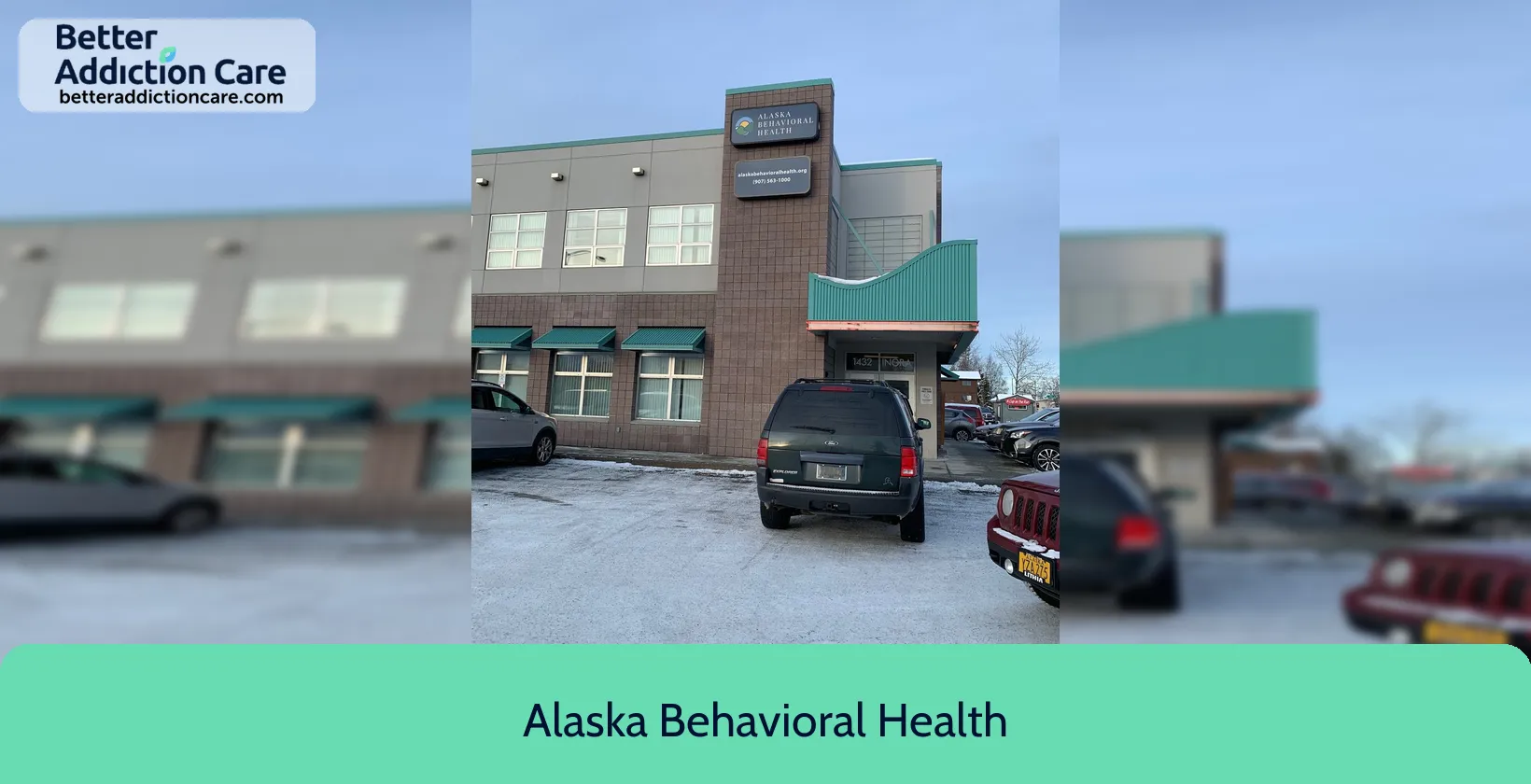
6.68
DISCLAIMER: The facility name, logo and brand are the property and registered trademarks of Alaska Behavioral Health, and are being used for identification and informational purposes only. Use of these names, logos and brands shall not imply endorsement. BetterAddictionCare.com is not affiliated with or sponsored by Alaska Behavioral Health.
